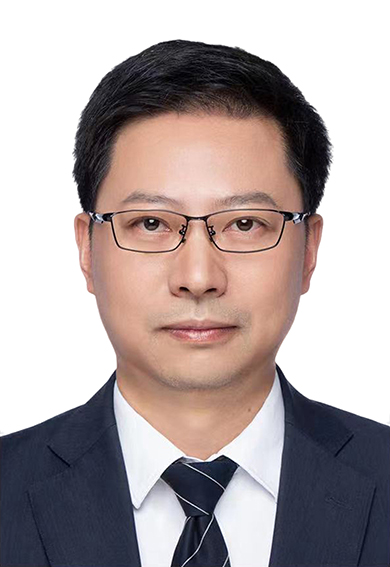
Xiaoming Zhang, Professor
Email: xmzhang@ips.ac.cn
Telephone: +86-21-5492 3130
Address: Room B108, Life Science Research Building 320 Yueyang Road, Xuhui District, Shanghai
Postcode: 200031
Research Areas
1. Systems Immunology in Human Disease
We have developed a powerful platform “Immune Cellomics” to map all types of human immune cells and their subsets, which is based on Super-complex Flow Cytometry and Multi-spectral Imaging. With this platform, we first identify disease-specific immune cells/subsets, followed by in-depth analysis of their functions and molecular signatures (mainly via Transcriptomics and Epigenomics). Then we will integrate the data from laboratory and clinics to draw a Precision Immunology Map through advanced computational modeling, with the purpose to identify key pathogenic mechanisms and novel theranostic and prognostic immune biomarkers.
Targeted diseases:
*: Infectious diseases: Tuberculosis, Sepsis
*: Tumors: Hepatocellular Carcinoma, Breast cancer
*: Autoimmune disease: Systemic Lupus Erythematosus
2. B cell development and function
We are also interested in the molecular mechanisms in B1 vs. B2 fate decision, epigenetic regulation of antibody responses, and immune regulatory functions of B cells.
Education
2004-2007 PhD University of Paris 6/Institut Pasteur of Paris
Experience
Work Experience
2007-2012 Postdoc, Institut Pasteur of Paris, France
2012-present Professor, Institut Pasteur of Shanghai, China
Publications
Papers
1. Dong Z, Gong K, Huang D, Zhu W, Sun W, Zhang Y, Xin P, Shen Y, Wu P, Li J, Zhang XM*, Wei M* Myocardial infarction accelerates glomerular injury and microalbuminuria in diabetic rats via local hemodynamics and immunity. Int J Cardiol, 2015, 179:397-408. (*: Corresponding author)
2. Zhang XM, Mozeleski B, Lemoine S, Dériaud E, Lim A, Zhivaki D, Azria E, Le Ray C, Roguet G, Launay O, Vanet A, Leclerc C, Lo-Man R. CD4 T cells with effector memory phenotype and function develop in the sterile environment of the fetus. Sci Transl Med. 2014, 6(238):238ra72.
3. Zhang XM, Casartelli N, Lemoine S, Mozeleski B, Azria E, Le Ray C, Schwartz O, Launay O, Leclerc C, Lo-Man R. Plasmacytoid dendritic cells engagement by influenza vaccine as a surrogate strategy for driving T-helper type 1 responses in human neonatal settings. J Infect Dis. 2014, 210(3):424-434.
4. Zhang XM. Regulatory functions of innate-like B cells. Cell Mol Immunol, 2013, 10(2): 113-121.
5. Zhang XM, Lepelley A, Azria A, Lebon P, Rouguet G, Schwartz O, Launay O, Leclerc C and Lo-Man R. Neonatal plasmacytoid dendritic cells (pDCs) display subset variation but can elicit potent anti-viral innate responses. Plos One, 2013, 8(1): e52003.
6. Freire T*, Zhang XM*, Deriaud E, Ganneau C, Vichier-Guerre S, Azria E, Launay O, Lo-Man R, Bay S, and Leclerc C. Glycosidic Tn-based vaccines targeting dermal DC favor germinal center B cell development and potent antibody responses in the absence of adjuvant. Blood, 2010, 116(18): 3526-3536. (*: equal contribution)
7. Zhang XM, Majlessi L, Deriaud E, Leclerc C and Lo-Man R. Coactivation of Syk kinase and MyD88 adaptor protein pathways by bacteria promotes regulatory properties of neutrophils. Immunity, 2009, 31 (5): 761-771.
8. Zhang XM, Deriaud E, Jiao XA, Braun D, Leclerc C and Lo-Man R. Type I interferons protect neonates from acute inflammation through IL-10 producing B cells. J Exp Med, 2007, 204(5): 1107-1118.
Research Interests
Human Immunology, Tumor Immunology, Infection and Immunity, B cell immunobiology
Students
现指导学生
方逸苑 01 19178
邵殿慧 01 19178
刘妹 01 19178
王友平 01 19178
王静 01 19182
徐慧晖 01 19182
